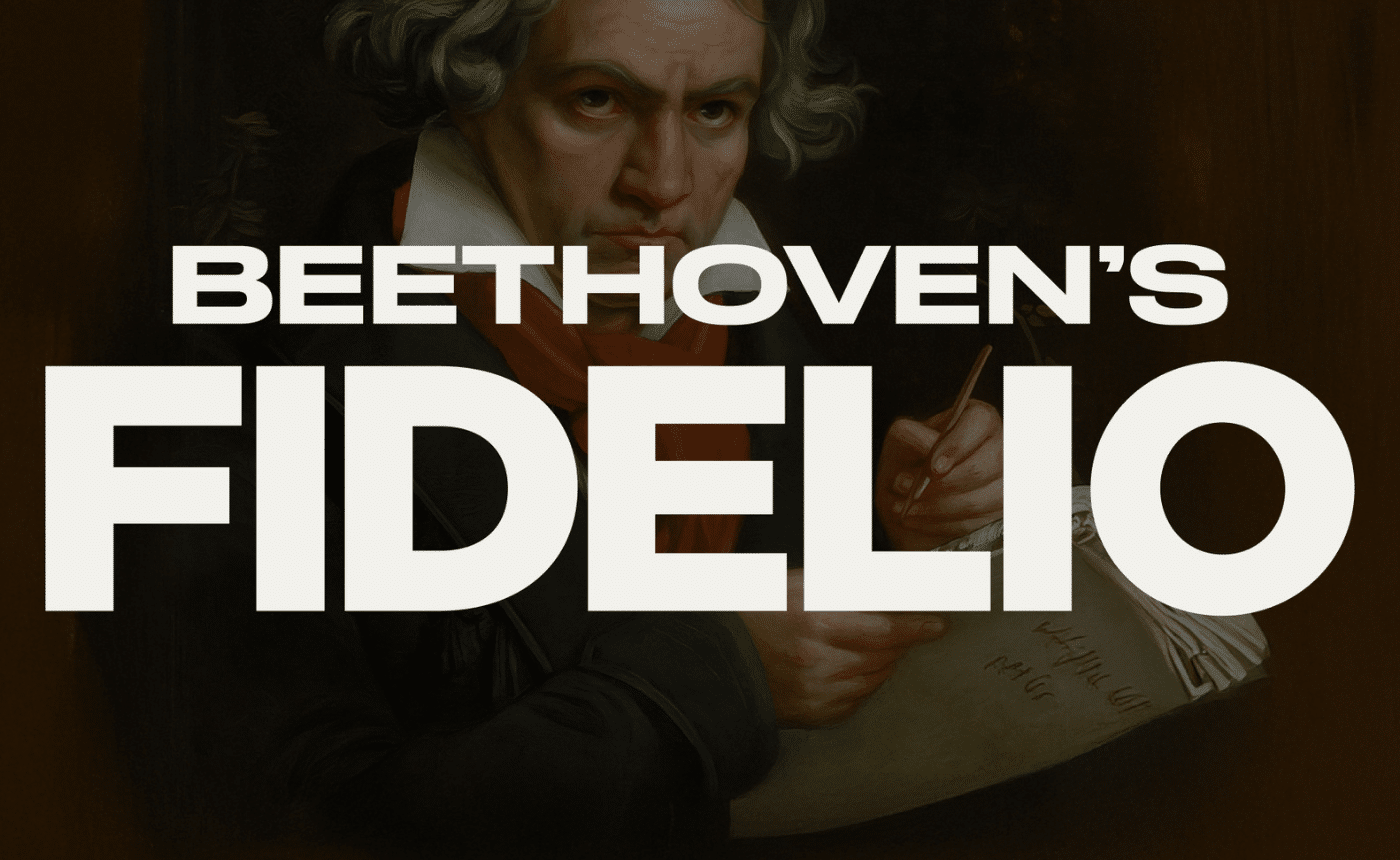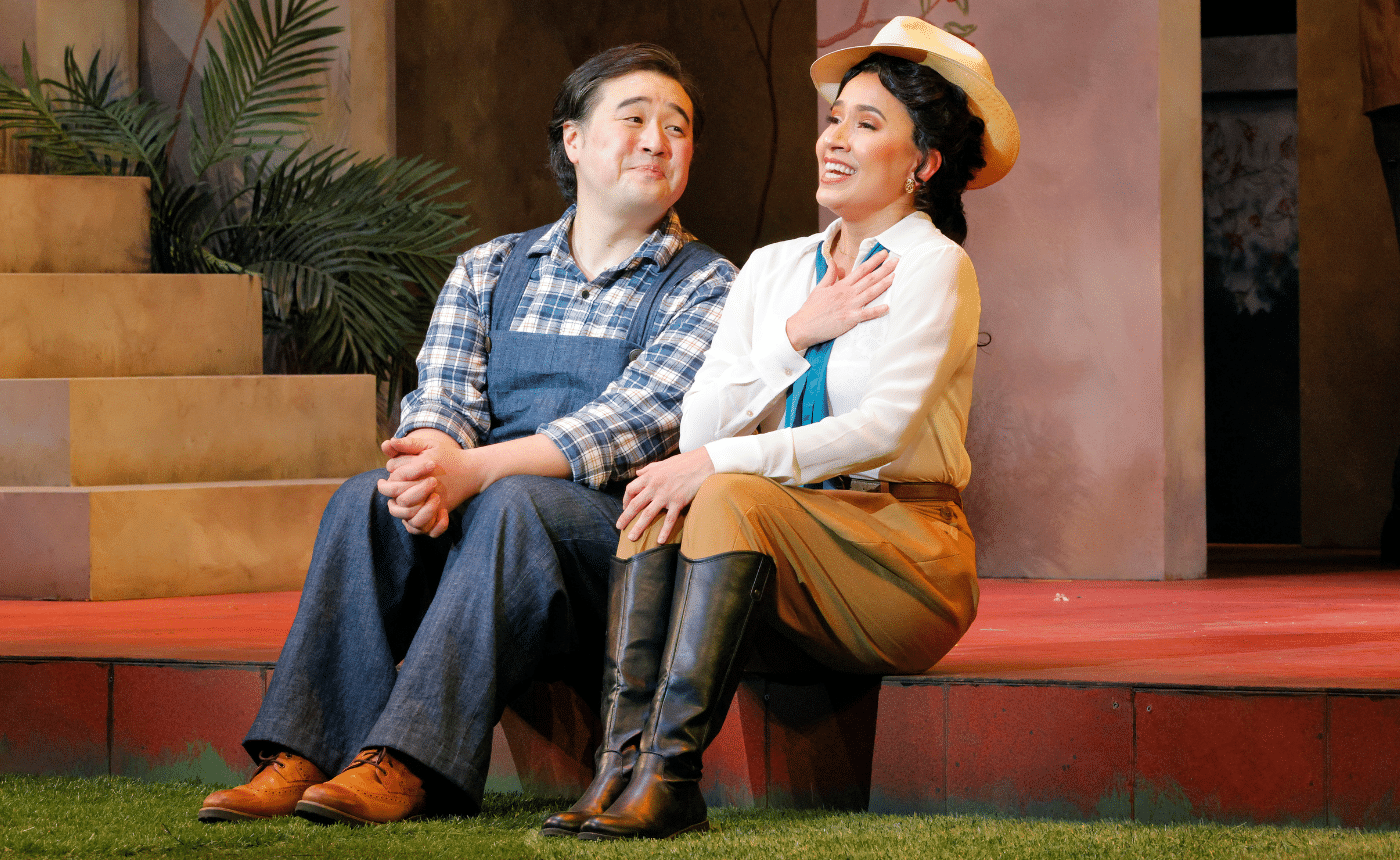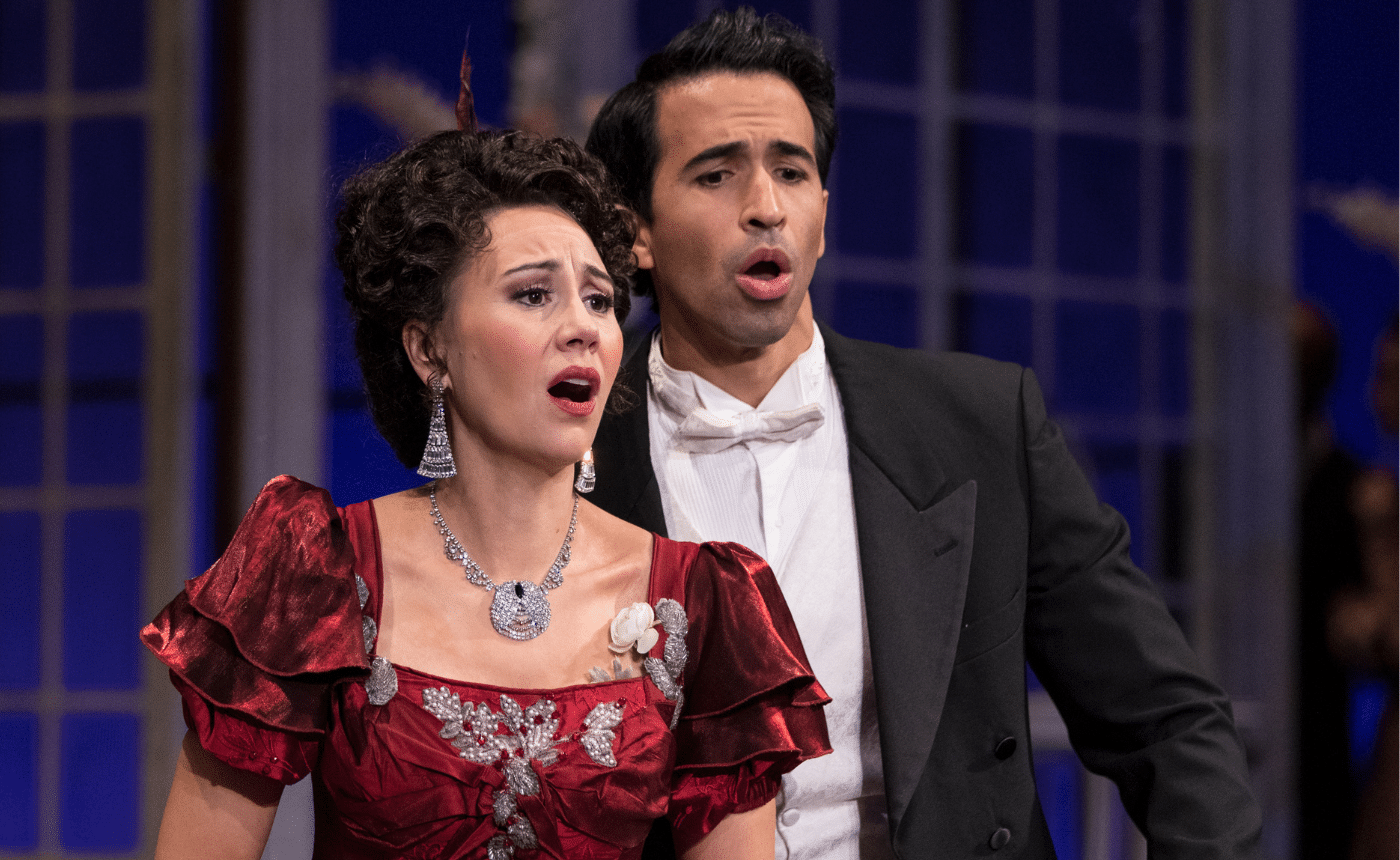The ShiningComposer and Librettist
PAUL MORAVEC, composer
Born in Buffalo, New York, in 1957, Paul Moravec’s first musical experiences included singing in church choir as a child, and playing the favorite instrument of many American parents, the recorder, in addition to studying piano. Moravec began to compose during his time as an Episcopal child chorister, writing pieces for guitar and piano. By the time he was in high school, he had decided he wanted to be a composer.
After graduating from the prestigious Lawrenceville School in 1975, Moravec matriculated at Harvard, where he studied for his B.A. in composition and performed with the Harvard-Radcliffe Collegium Musicum, established in 1971. Post graduation experiences included studies in composition at Columbia University where he earned Master’s (1982) and Doctoral (1987) degrees. He was awarded the Rome Prize from the American Academy in Rome, which funded a residency in Rome in 1985.
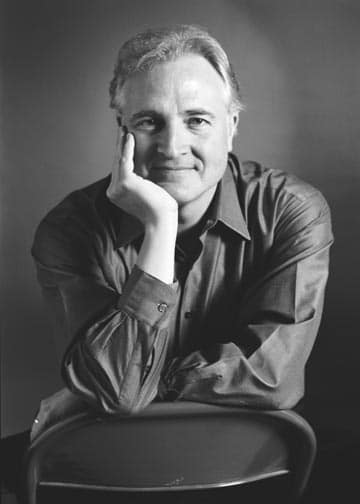
Moravec’s compositional output is extensive, and features works for a variety of forces, from solo instruments or chamber ensemble to large-form orchestral works and concertos. His “Tempest Fantasy,” written for clarinet, violin, cello, and piano, took its inspiration from the characters and text of The Tempest, Moravec’s favorite Shakespeare play. Mercurial, optimistic, and at times, melancholy, Moravec described this work as an allegory for his journey through depression. Commenting on the sorcerer Prospero in a 2007 New York Times interview, Moravec stated “through the power of imagination he improves his condition, and so that’s what I did as a composer.” This deeply personal composition earned him the 2004 Pulitzer Prize, one of the most prestigious awards in a long list of compositional accolades.
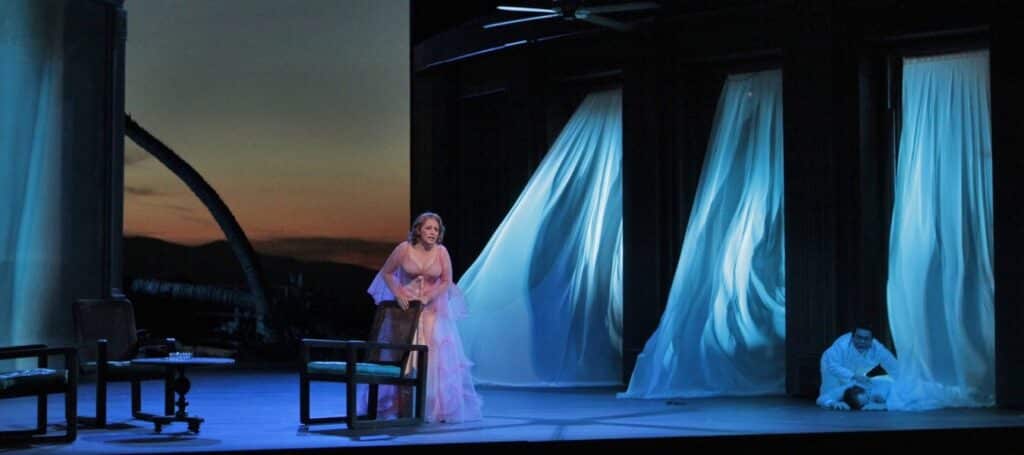
2009 marked the world premiere of Paul Moravec’s first opera, The Letter, set to a libretto by playwright, author, and Wall Street Journal critic Terry Teachout, also taking his first steps into the opera world. Based on a 1927 play by W. Somerset Maugham, this “opera noir” debuted to general audience appreciation at its premiere at The Santa Fe Opera, an opera company famed for its commitment to the development of new operatic works. Critics praised its colorful orchestration, stream-lined dramatic arc, and musical accessibility.
Paul Moravec and Terry Teachout’s The Letter
Subsequent operas by Paul Moravec include two chamber operas Danse Russe (2011) and The King’s Men (2013), as well as Sanctuary Road (2022), an opera/oratorio about William Still, a conductor on the Underground Railroad. 2016’s The Shining, clocking in at around 120 minutes of music, is his longest theatrical work, which speaks to the concision of his dramatic sensibilities.
Moravec’s music has been characterized as neo-Romantic, cinematic, and attractive, while his vocal writing can range from angular to lyrical and melodic, inspired by the needs of the dramatic scene. In the late twentieth century, when classical music was seeing the decline of modernism, Terry Teachout, wearing his critic hat, coined the term “new tonalist” to describe Moravec’s aesthetic, but Moravec considers that term to be outdated at this point, as, in his words, “who isn’t a New Tonalist now?” He prefers the appellation “polystylist.”
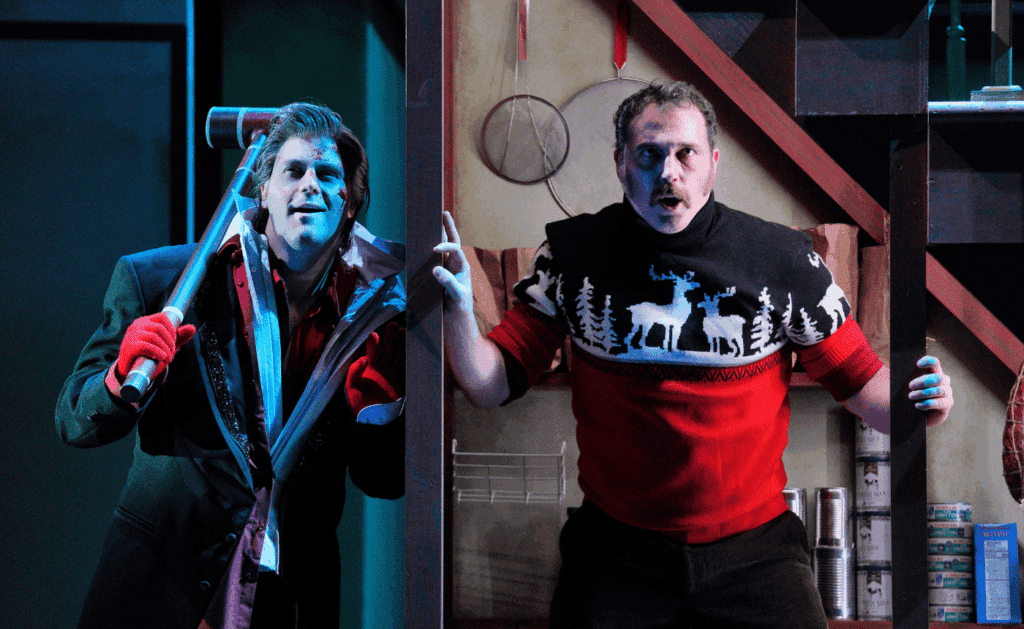
MARK CAMPBELL, librettist
2025 OPERA America Hall of Fame Inductee Mark Campbell is demonstrably one of the most influential and successful librettists of the twentieth century. Beginning with his first libretto, Volpone, commissioned by Wolf Trap Opera for performances in 2004, his theatrical writing career has flourished, with over 41 opera libretti in his credits, as well as lyrics to 7 musicals, and the texts for 9 songs cycle and 5 oratorios. It’s no wonder he was honored with the National Opera Association’s Lifetime Achievement Award in 2024.
Despite his current passion for the art form, Campbell came to opera late. As a young person he studied piano and voice, and he majored in theatre—acting and dance—at the University of Colorado at Boulder. There he had his first experience with opera, joining a production of The Marriage of Figaro as a dancer. His first impression of opera was less than positive, as his passion (and childhood experiences) lay in musical theatre. Post-college, he moved to New York to pursue acting, a pursuit that was somewhat short-lived. At the time he was transitioning from acting, he was dating a composer who asked if Mark would consider writing lyrics for a musical he was writing. Based on the tragic story of Nicholas and Alexandra, the musical never came to production, but Campbell had discovered his true calling. Despite many initial early successes as a librettist, he initially balanced his theatre work with freelance graphic design. It wasn’t until 2015 that he was able to devote himself solely to his opera and musical projects.
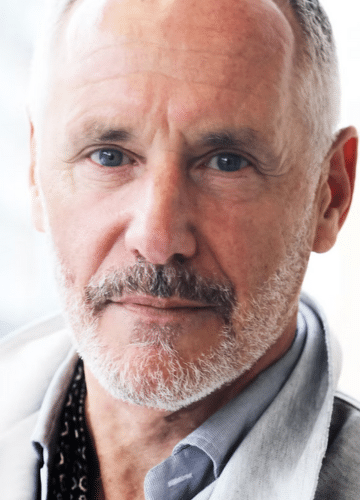
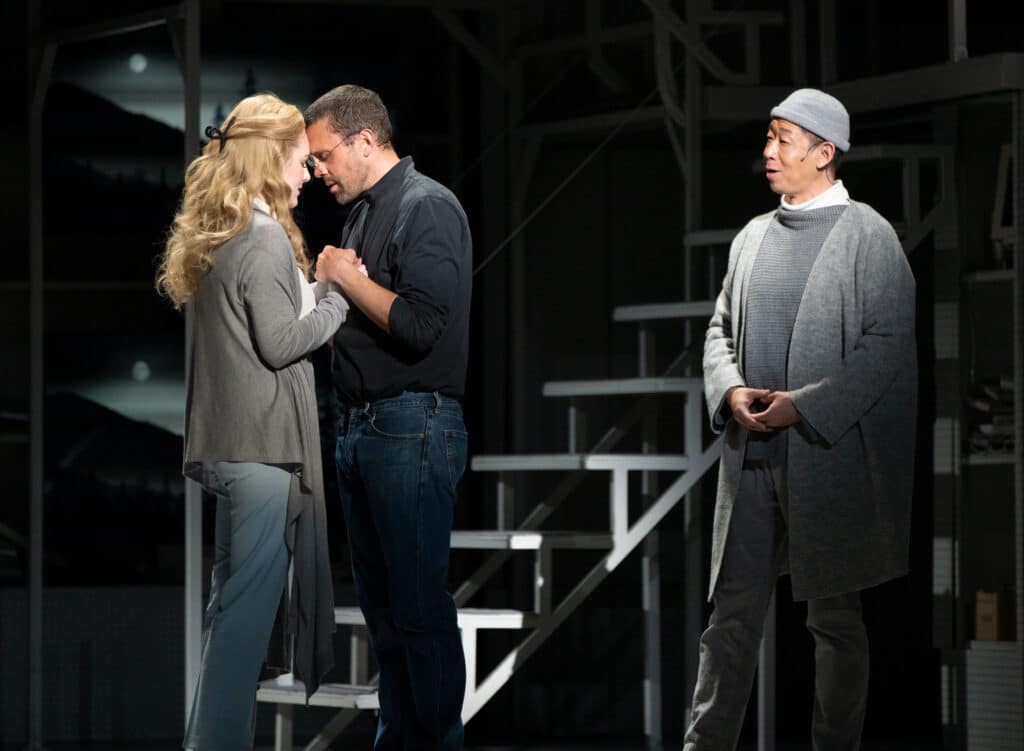
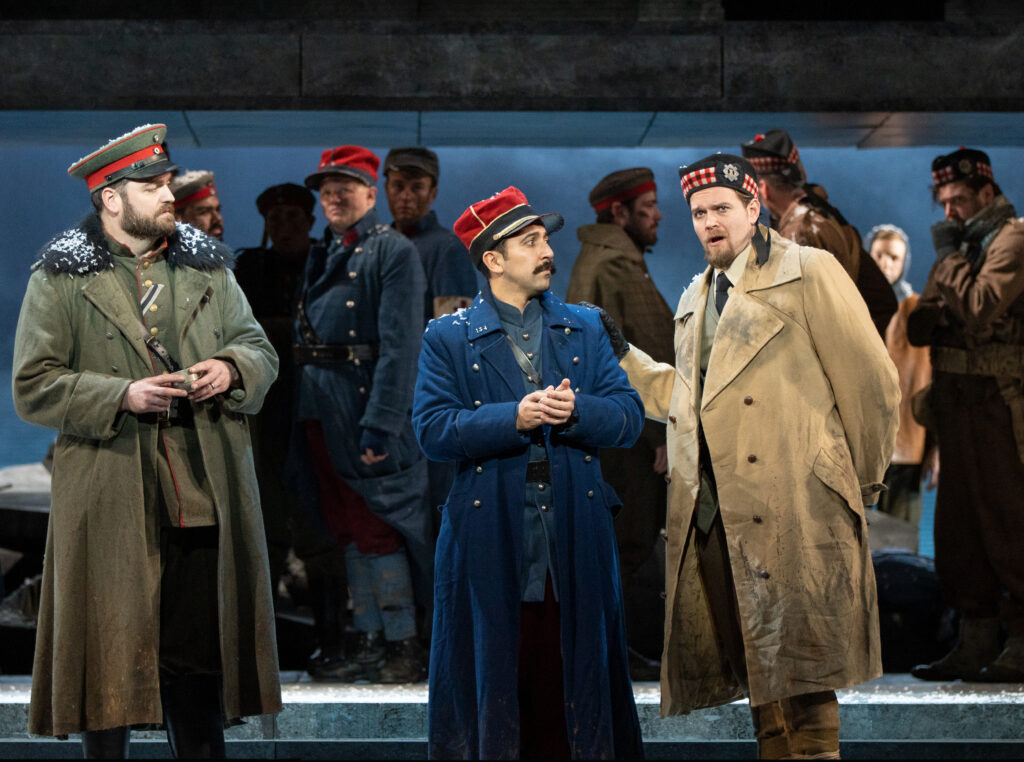
In a 2023 oral history interview with Mark Scorca, former president/CEO of OPERA America, Campbell estimated that his work (at the time of the interview) was almost evenly divided between adaptations of extant material and original work. The Grammy Award winning opera The (R)evolution of Steve Jobs (2017), created with composer Mason Bates, is an example of the former. Utah Opera presented one of his many adaptations in 2020, with their production of Kevin Puts’ Silent Night, an adaptation of the 2007 film Joyeux Noël. His list of opera subjects is wide-ranging, comprising comedies and dramas, family-friendly tales and slasher stories. His main requirement is to “have characters that I care about. I have to know that there is a reason for them to be singing.”
In addition to his own work in theater, Campbell is a passionate advocate for the advancement of contemporary opera and helps inspire and educate the “next generation” of librettists through programs such as Washington National Opera’s American Opera Initiative. He has created and funded two awards: the Mark Campbell librettist prize through OPERA America, and the True Voice award, designed to support the training of transgender singers. Though abashed at the naming of the librettist prize, he believes attracting the best writers to the opera world is an essential component to ensuring the future of this art form.



